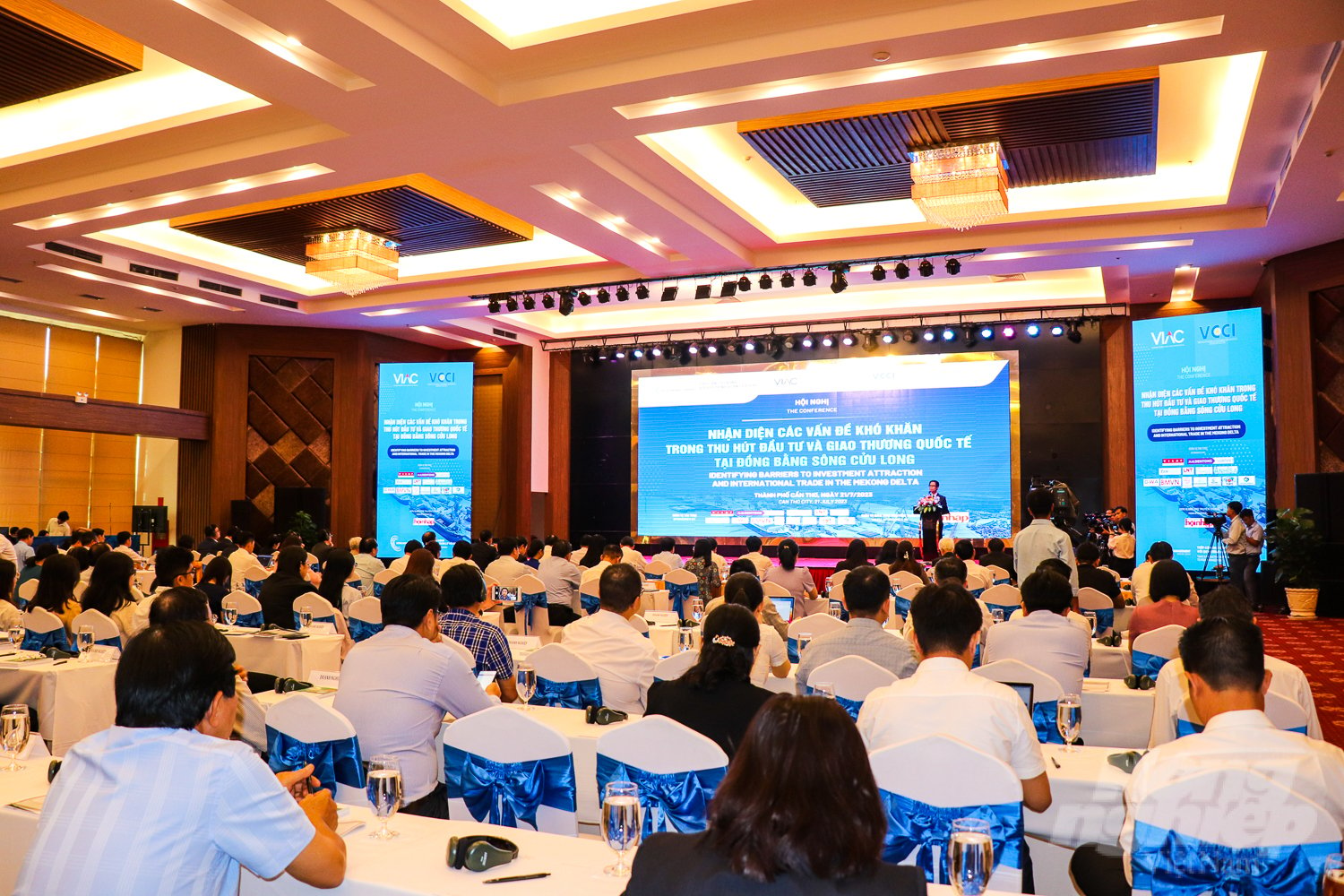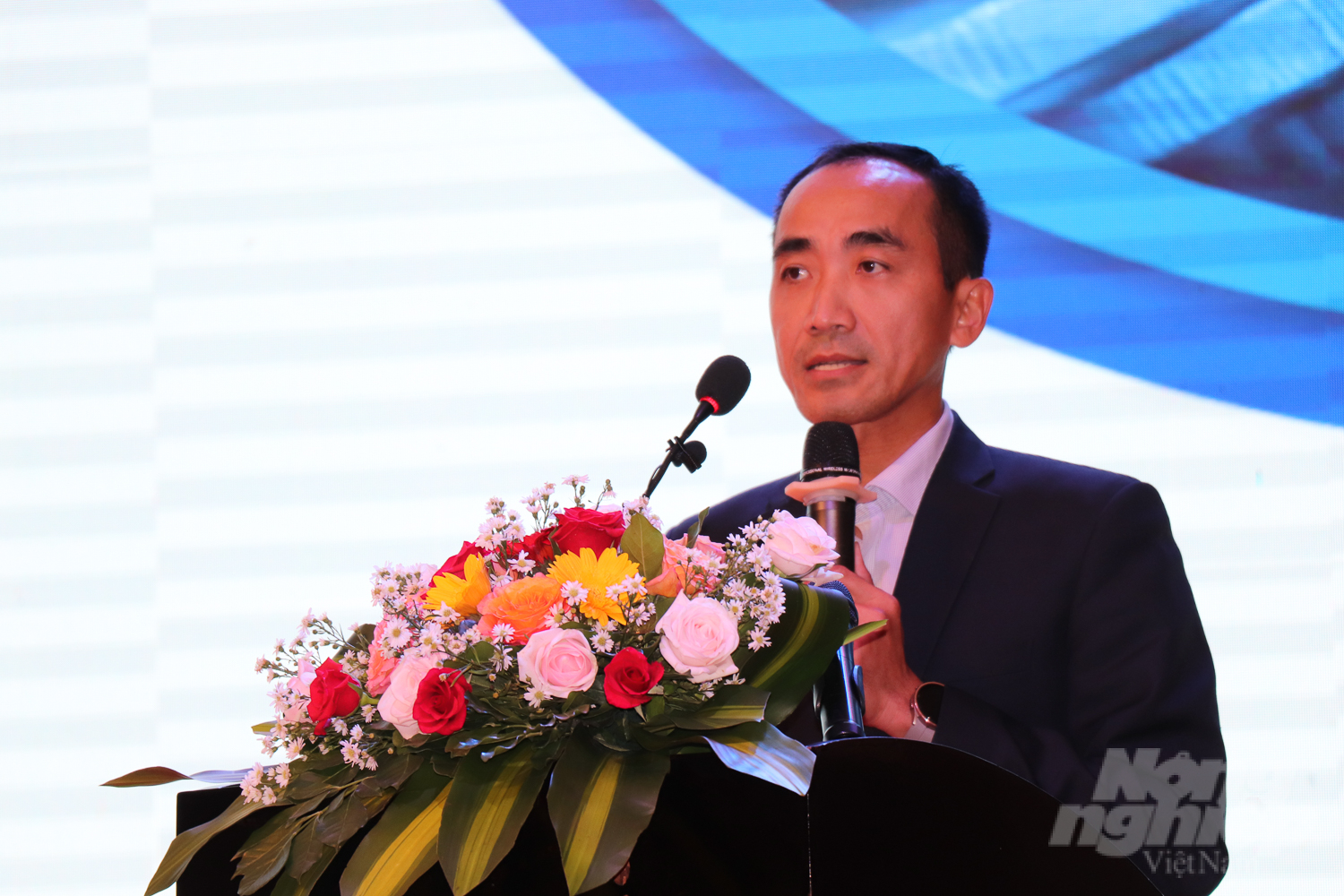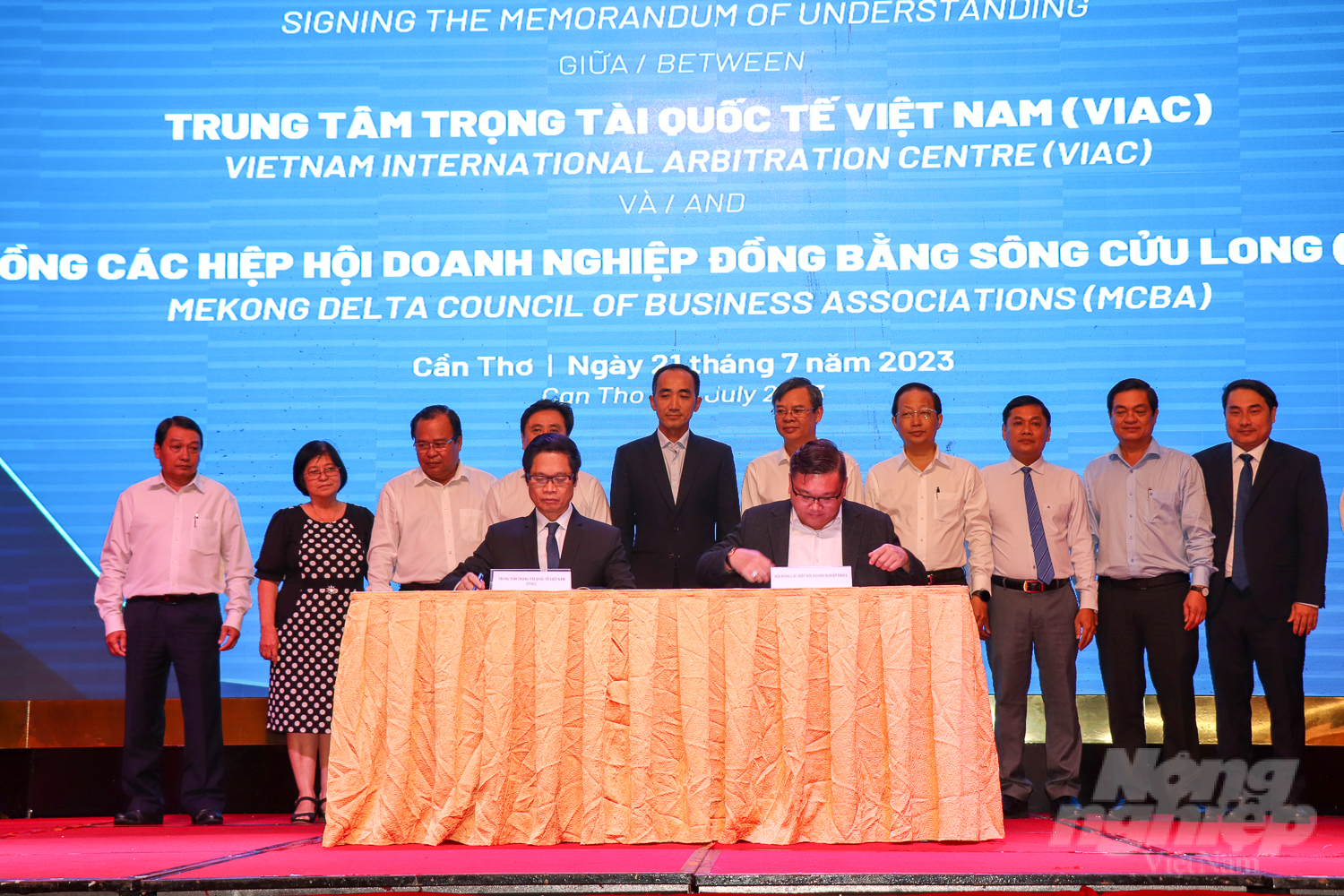June 3, 2025 | 11:22 GMT +7
June 3, 2025 | 11:22 GMT +7
Hotline: 0913.378.918
June 3, 2025 | 11:22 GMT +7
Hotline: 0913.378.918
The Vietnam International Arbitration Center (VIAC), in collaboration with the Vietnam Chamber of Commerce and Industry (VCCI) in Can Tho, hosted the International Conference on "Identifying Barriers to Investment Attraction and International Trade in the Mekong Delta" on July 21 in Can Tho. The purpose of the event is to seek solutions for creating a modern and sustainable investment environment in the Mekong Delta, as well as to provide a realistic assessment of the region's legal framework for attracting investment.

International Conference on "Identifying Barriers to Investment Attraction and International Trade in the Mekong Delta" was held in Can Tho on July 21. Photo: Kim Anh.
According to VIAC, despite facing ample challenges in 2021 and 2022, the Mekong Delta's commercial activities remain stable. Local governments and the business community have implemented initiatives to improve investment and business environments. Consequently, creating advancements and reaffirming the 'trade blood-vessed' status of the Southern region.
Currently, Long An province and Can Tho City are the two leading investment destinations, boasting a number of notable projects and registering a substantial amount of foreign investment capital. Other localities in the region are also actively improving the investment climate, concluding the necessary procedures, and remaining prepared to accept high-quality investment capital. Since 2022, investors have focused on other provinces, including Ben Tre and Tra Vinh, among others.
Rice, seafood, and vegetables are the primary categories of industries that attract foreign investment. Recently, renewable energy and sustainable energy have also emerged as potential FDI magnets.
Typically, the province of Bac Lieu will attract a liquefied natural gas power plant project worth up to 4 billion USD in 2020. Can Tho city also effectively attracted investment in the O Mon II Thermal Power Plant Project with a direct investment capital of USD 1.3 billion in 2021, making it the city's largest-scale FDI project ever.
Nevertheless, a survey conducted by VCCI Can Tho revealed that by June 2023, the entire Mekong Delta region had over 1,900 FDI projects with a total foreign investment capital of over USD 35 billion, a relatively modest figure compared to other regions of the country.
Director of VCCI Can Tho, Nguyen Phuong Lam, stated that in order to attract FDI enterprises to invest in the Mekong Delta region, it is necessary to have strategies to effectively attract investment capital from both domestic and foreign enterprises while maximizing inherent assets. Moreover, a crucial institutional and legal bottleneck must be resolved.
According to domestic and international investors, the Mekong Delta region satisfies the requirements and merits to be a lucrative investment destination. However, the business also mentioned that one of the major issues that still exist in the region is: The transport infrastructure system connecting the country's largest economic center, Ho Chi Minh City, with provinces and cities in the Mekong Delta and the region is not synchronized and lacks links; the lack of high-quality human capital.

Mr. Nguyen Phuong Lam, Director of VCCI Can Tho, said that the number of FDI enterprises investing in the Mekong Delta is still modest compared to other regions in the country. Photo: Kim Anh.
Moreover, the legal framework, procedures, and overlaps between legal documents become significant impediments.
According to Mr. Nguyen Phuong Lam, in the field of real estate investment, enterprises encounter complications between the Investment Law, the Housing Law, and the Real Estate Law. If the Law on Land necessitates an investment policy, the land use privilege may be altered. According to the Investment Law, businesses are required to possess land exploitation rights and land use rights prior to investing. Therefore, when implemented, the initiatives do not know which law to apply.
Mr. Vu Tien Loc, President of VIAC, continued to highlight deficiencies in the real estate and renewable energy sectors, noting that the legal framework and administrative procedures are the primary issues affecting trade and investment promotion activities in the Mekong Delta. Inadequate institutional overlap and unresolved conflicts make it difficult for businesses to apply.
Mr. Loc stated that in order to eliminate obstacles and difficulties in attracting investors, the institution-building process must continue. In which there are legal provisions concerning the production and commercial activities of international trade investment enterprises.

Signing a Memorandum of Understanding between the Vietnam International Arbitration Center and the Mekong Delta Business Association Council. Photo: Kim Anh.
In recent years, the legal system and a number of government policies have contributed to investment promotion in the region. However, after two years of being affected by the Covid-19 epidemic, businesses anticipate a drastic change from the competent state agency in the form of a favorable and open legal pathway for businesses to invest with confidence, according to Mr. Loc.
Considering that economic trade is expanding at the moment, businesses in the region will collaborate with not only domestic but also numerous international partners. This means that a dispute of increasingly complex nature can arise at any time. Therefore, Mr. Loc hopes that businesses improve their legal capacity and implement predictive plans to prevent effectively and proactively dispute risks.
VIAC is collaborating with local governments and businesses in the Mekong Delta to establish a network of legal support, law enforcement, and protection of businesses' legitimate rights and interests.
Translated by Linh Linh

(VAN) TTC AgriS and IFC signed a strategic partnership to develop a sustainable agricultural value chain, aiming to achieve the Net Zero target by 2035.

(VAN) Seafood by-products are opening a new path, combining green growth and technological innovation to enhance the industry's value.

(VAN) Mr. Nguyen Thanh Cong, Vice Chairman of the Son La Provincial People's Committee, reflects on Son La’s journey from barren hills to fruitful orchards after a decade of hard work.

(VAN) FAO’s Director-General addresses the 5th Baghdad International Water Conference.
/2025/05/26/1716-4-nongnghiep-191706.jpg)
(VAN) Chain linkages, technological innovation, and raw material zoning are three strategic pillars for the coconut industry to strongly develop and elevate its position on the global agricultural map.
![Advanced mariculture – an inevitable trend: [4] Accompanied by scientists](https://t.ex-cdn.com/nongnghiepmoitruong.vn/608w/files/sohk/2025/05/13/1941-pgsts-vo-van-nha-140958_717.jpg)
(VAN) According to Assoc. Prof. Dr. Vo Van Nha, Director of the RIA III, the development of advanced offshore mariculture is no longer an option but an essential path for Vietnam’s fisheries sector.

(VAN) Vietnam is intensifying the development of mollusk farming areas that meet international standards, aiming for sustainable growth and enhancing its export position in the global seafood market.